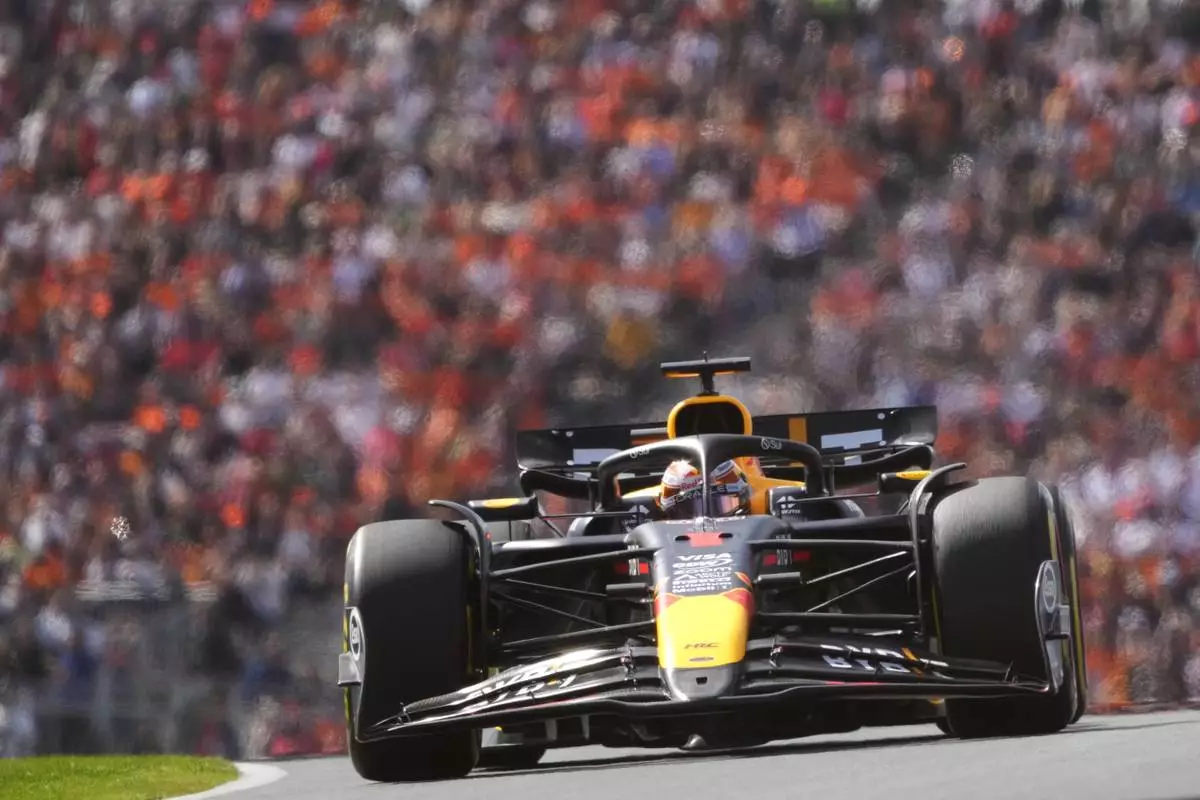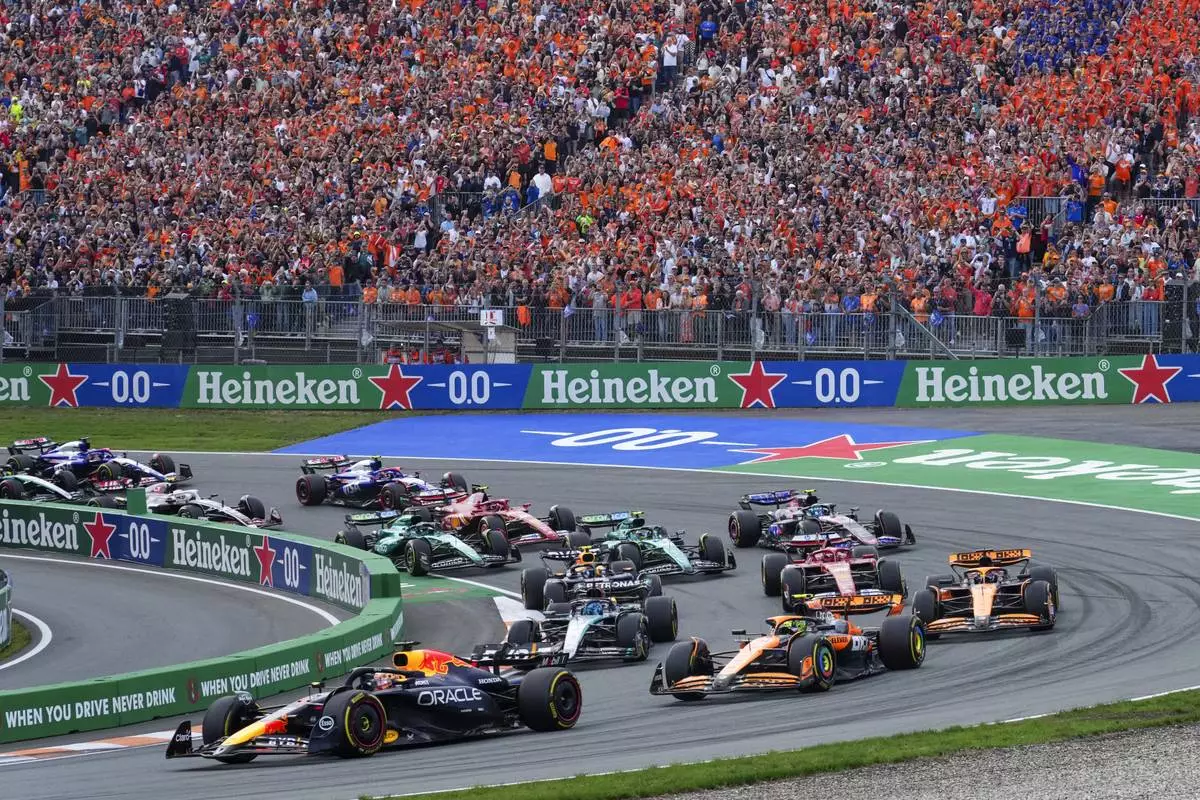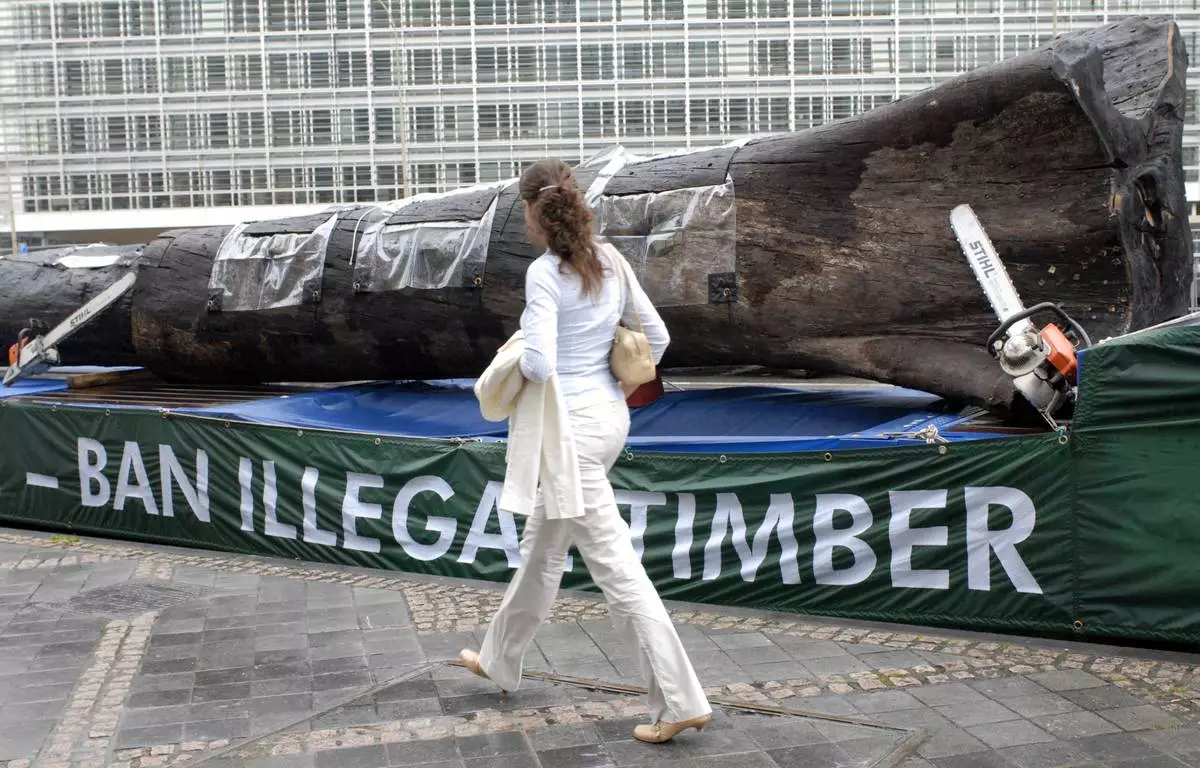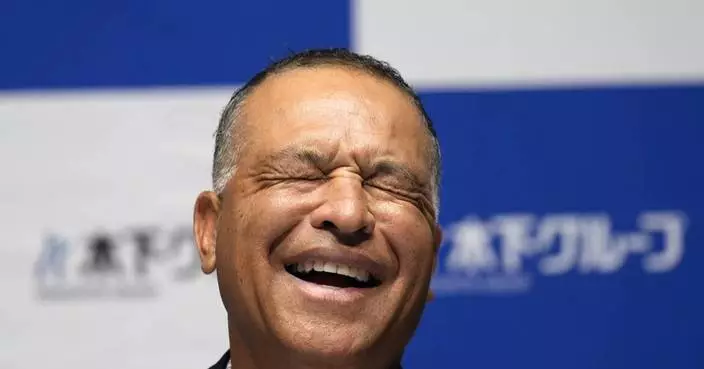ZANDVOORT, Netherlands (AP) — World champion Max Verstappen 's home Grand Prix will only be on the Formula 1 calendar for two more years after it was announced Wednesday that 2026 will be the last edition.
F1 said it granted a one-year contract extension for the 2026 race but it was the local promoter’s decision not to continue after that.
Dutch Grand Prix director Robert van Overdijk said it would be “the end of a monumental era.”
The beachside track at Zandvoort has been known for its passionate orange-clad fans cheering on Verstappen. He won the first three editions of the race after it returned to the F1 calendar in 2021 for the first time since 1985. Lando Norris won this year.
“We are a privately owned and operated business, and we must balance the opportunities presented by continuing to host the event, against other risks and responsibilities," van Overdijk said in a joint statement with F1. "We have decided to go out on a high with two more incredible Dutch Grands Prix in 2025 and 2026."
F1 said the 2026 Dutch Grand Prix will also feature a sprint race.
F1 president and chief executive Stefano Domenicali said Dutch organizers were offered the option of hosting a race in alternate years, but “we respect the decision from the promoter to finish its amazing run in 2026.”
AP auto racing: https://apnews.com/hub/auto-racing

FILE - Red Bull driver Max Verstappen of the Netherlands steers his car during the Formula One Dutch Grand Prix race at the Zandvoort racetrack, Netherlands, Sunday, Aug. 25, 2024. (AP Photo/Peter Dejong, File)

FILE - Red Bull driver Max Verstappen of the Netherlands leads the field after the start of the Formula One Dutch Grand Prix race at the Zandvoort racetrack, Netherlands, Sunday, Aug. 25, 2024. (AP Photo/Peter Dejong, File)

Red Bull driver Max Verstappen of the Netherlands stands on the podium after winning the Qatar Formula One Grand Prix at the Lusail International Circuit in Lusail, Qatar, Sunday, Dec. 1, 2024. (AP Photo/Darko Bandic)
BRUSSELS (AP) — The European Union agreed to delay by a year the introduction of new rules to ban the sale of products that lead to massive deforestation, caving in to demands from several producer nations from across the globe and domestic opposition within the 27-nation bloc.
Officials said Wednesday that the EU member states, the EU parliament and the executive Commission reached an agreement in principle following weeks of haggling whether the initial rules would have to be watered down even further than the simple delay by one year. Originally, it was supposed to kick in this month.
The deforestation law is aimed at preserving forests on a global scale by only allowing forest-related products that are sustainable and do not involve the degradation of forests. It applies to things like cocoa, coffee, soy, cattle, palm oil, rubber, wood and products made from them. Deforestation is the second-biggest source of carbon emissions after fossil fuels.
The lead negotiator among the different EU institutions, Christine Schneider, called the delay to implement nature protection rules “a victory,” adding it would give foresters and farmers protection from “excessive bureaucracy.”
Environmentalists immediately criticized the move.
“With our planet’s forests destroyed further every day, we cannot afford delays to much-needed environmental protection laws like the EU’s anti-deforestation legislation," said said Giulia Bondi of the Global Witness group. .
Officials from leading exporters of affected commodities — including Brazil, Indonesia and the Ivory Coast — fear the regulation could act as a trade barrier, hit small farmers and disrupt supply chains.
Under the deal, the rules are now scheduled to start Dec. 30, 2025, for large companies, and June 30, 2026, for small companies. The different EU institutions will still have to individually approve the deal but since they agreed on the measures, this is likely to be a formality.
In offering to delay the regulation by a year, the EU Commission has said it heeded the complaints of several global partners about their state of preparedness for the rules.
Some EU governments, including in Austria and Germany, have also sought to water down the regulation or delay its introduction.
With the delay, some governments sought to add more measures that would weaken the original rules and allow for more exemptions. Even if that was not agreed to in the current deal, Schneider said that the commission had “committed itself to updating the Deforestation Law within a year.”
Greenpeace has said that the extension would condemn the world’s forests to another year of destruction. It noted a U.N. finding that an area of forest about the size of Portugal is cut down worldwide each year.
"Instead of rolling back its environmental agenda, the EU needs to keep its commitments and show leadership to tackle the climate emergency,” said Bondi.

FILE -A woman walks passed a 12-meter Amazon tree trunk placed in front of the European Union Council building by environmental activists in Brussels, July 2, 2008 (AP Photo/Thierry Charlier), File)













